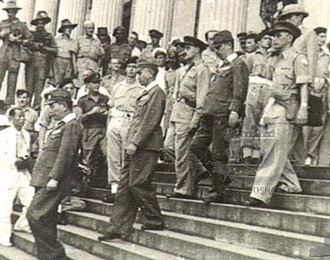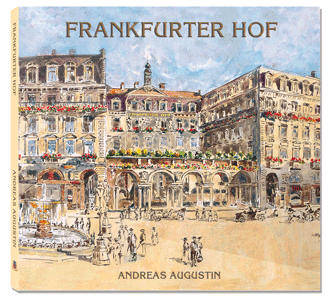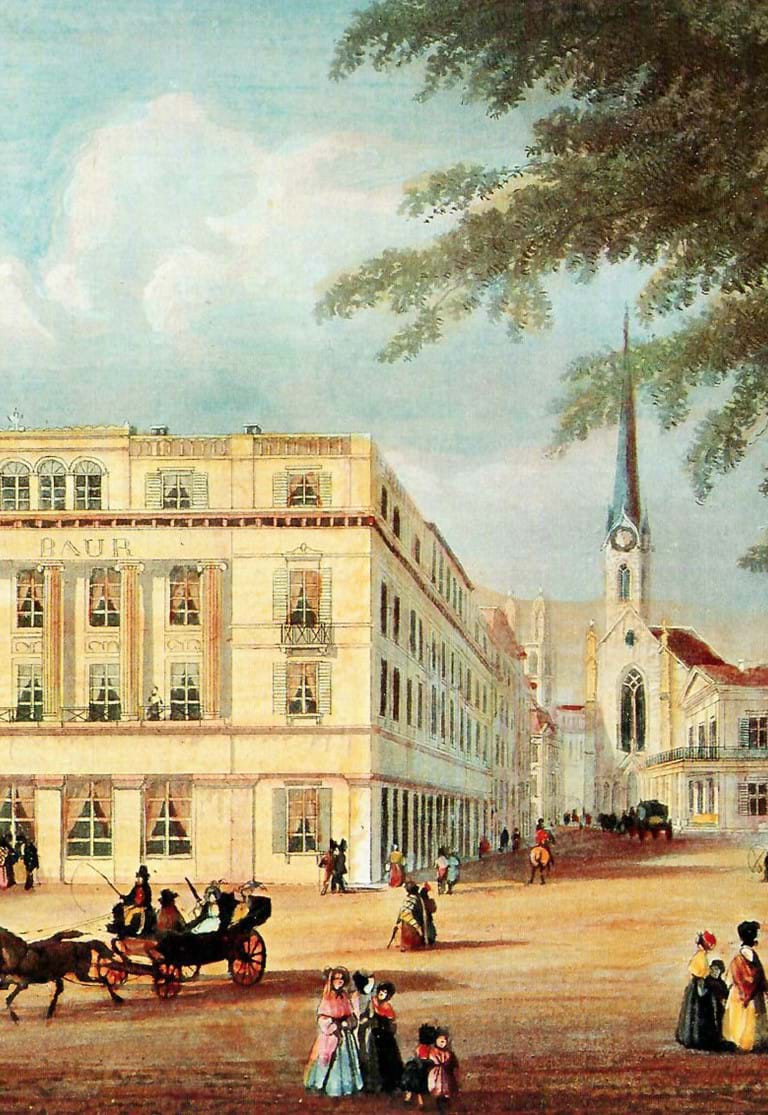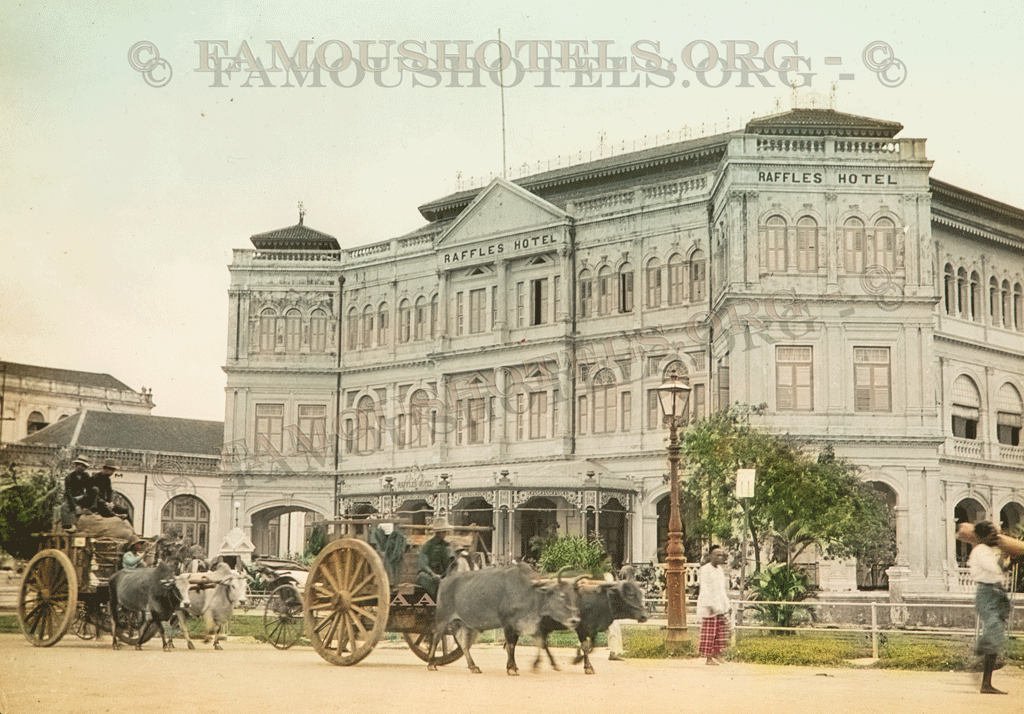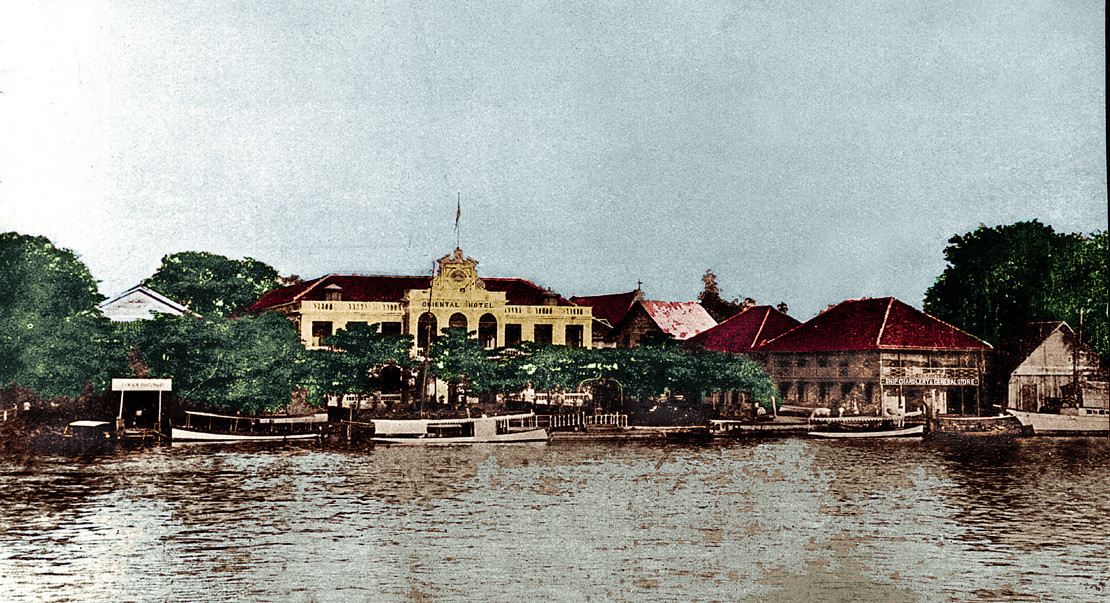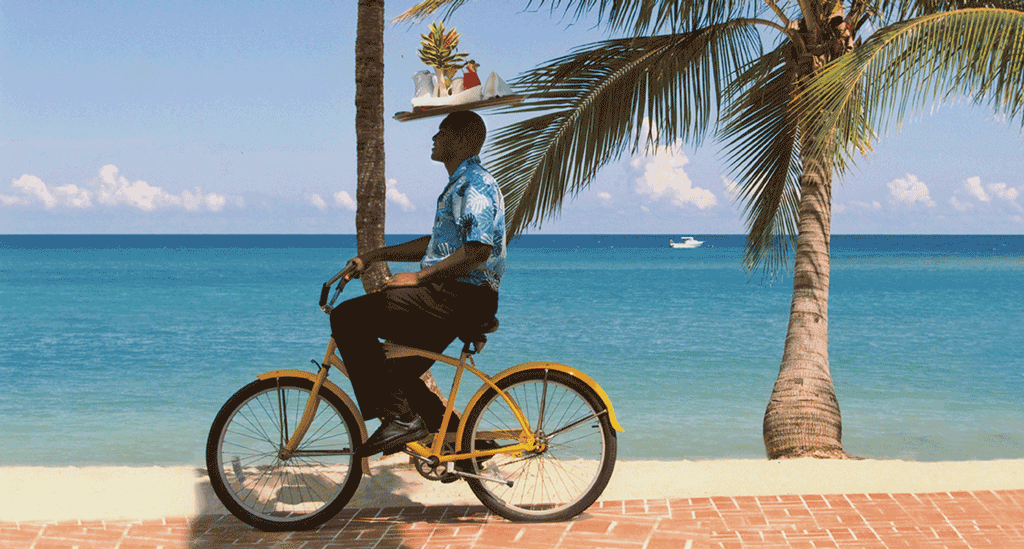Did 300 Japanese commit suicide at Raffles Hotel?
( words)
To those whose served in Singapore and to the people of Japan who wish to help to turn rumours into facts:
Various websites have started to propagate the ‘historical fact’ that 300 Japanese officers committed suicide at Raffles Hotel in Singapore by blowing themselves up with hand grenades, following the surrender of the Japanese army to the Allied Forces in 1945.
 Did 300 Japanese soldiers die at Raffles Hotel in 1945? Is it possible that a collective suicide of 300 people went down unnoticed?
Did 300 Japanese soldiers die at Raffles Hotel in 1945? Is it possible that a collective suicide of 300 people went down unnoticed?
To refresh your memory: during the Japanese occupation of Singapore (15 February 1942 – 22 August 1945), Raffles was renamed Syonan Ryokan, incorporating ‘syonan’ ("Light of the South"), the Japanese name for occupied Singapore, and ‘ryokan’, the name for a traditional Japanese inn. Until the end of the war, Singapore, and with it of course Raffles Hotel, remained occupied by the Japanese. It was reported that after the surrender of the Japanese forces in 1945, many Japanese officers and soldiers committed suicide.
But where did these websites get the 300-men grenade suicide idea from? Well, it seems to be a clear case of muddling the facts from an earlier report, in the Sunday Times (of the New Straits Times, Singapore). According to the paper, recently released top-secret documents from World War II show that, on 22 August 1945, a mass suicide did take place at the hotel. The Times story said: ‘That night, more than 300 Japanese officers and men held a farewell sake party at one of the lounges in the Raffles Hotel. Then, leaning on their short swords, 'they hastily returned to their ancestors'. A whole Japanese platoon later pulled the pins off hand grenades and blew themselves to pieces.’
Then, the report was abridged to form a different version in several publications, including the entry on Wikipedia:
Raffles Hotel - Wikipedia, the free encyclopedia: More than 300 Japanese troops committed suicide in the hotel using grenades...
So there are two separate versions, one seemingly exaggerated significantly. But let’s see if we can shed some light on the reports. I’ve spoken to Roberto Pregarz, the former manager of Raffles Hotel, who remembers staff from World War II. He said:‘I doubt that 300 of them committed suicide at Raffles. I had never heard this story. Some of my staff like our cashier Tan Geok Swee worked at Raffles during the Japanese occupation and never mentioned this. And he told us lots of stories.’
Ilsa Sharp, the first biographer of Raffles Hotel, who interviewed former Raffles employees and managers for her detailed account, equally confirms:‘It’s seems to be an extreme exaggeration of old stories, like the legend that the guests at Raffles danced on until very late in the Japanese bombardment of Singapore etc (true – but not as late as this story suggests). A few Japanese soldiers may have committed suicide in the hotel at the end of the war. Certainly not with grenades and certainly not 300!’
It seems to be a case of exaggerating reality. But let’s clear it up.
We are calling on soldiers from Japan, who were in Singapore during that time, and the Japanese war archives for an official statement. Please support our duty to settle this matter, once and for all.
Andreas Augustin
Since 1986, The Most Famous Hotels in the World has guarded the history of Raffles Hotel in Singapore. With the discovery of the original building plans in 1987, we enabled the protection of the building, its declaration as a national monument and ultimately its restoration, giving us the hotel we have today.

